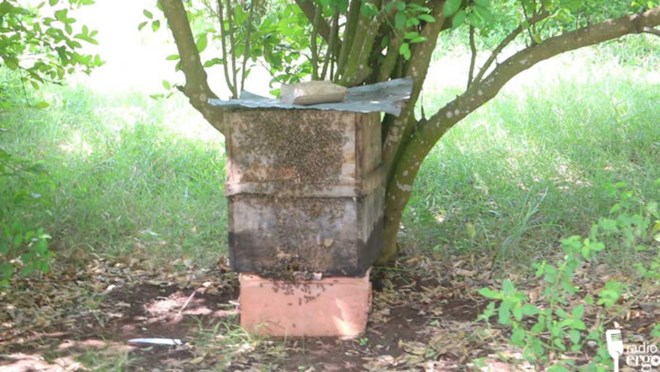
Wednesday June 30, 2021
Mohamoud Abdi Dakane was devastated when he lost his 40 camels and 75 goats to drought several years ago, but he is now reaping big profits from bee farming and no longer misses his former life.
Mohamoud, who lives in Elbarde in southern Somalia’s Bakool region, harvests honey twice a year to sell in Mogadishu and Beletweyne, making $500 each time from the sales.
Mohamoud, with a family of 18 members, has been able to pay for the education of eight of his children. They came to Qurac-Joome, 90 km from Elbarde town, after losing all their animals in 2013. He now has 80 beehives.
“There is a big difference between my former life and now. When I lost my livestock, I used to sit at restaurants and come back home in the evening empty handed. But now I harvest 40 to 60 litres of honey at times,” he said.
Mohamoud is among 21 drought-hit pastoralists and nine businessmen from rural villages around Elbarde, who received training and beekeeping equipment from Action Against Hunger (ACF) early this year.
Adan Gedow Mohamed’s clothes and utensils shop in Qurac-joome collapsed in 2015, when he realised that he had collected $7,000 in fake banknotes made in Adado and he became bankrupt.
Undeterred, he spotted a market gap and was the first person to start beekeeping in his village. For the first year, he was ridiculed by others for turning to bees, but after four months he turned a profit and he now has 55 beehives.
The bees helped him recover from the losses of his shop and he pays school fees for his three children at a local school, harvesting 3,000 litres of honey a year to sell in Mogadishu, Beletweyne and Bosaso for around $2,000.
“I harvest the honey at least four times a year. But there are times when I have harvested six times with some good harvests in the dry winter season,” he said.
Adan, the head of an eight-member family, believes that beekeeping, whilst not well understood by the local community, is better than herding livestock, as harvests and profits can be realised in under a year.